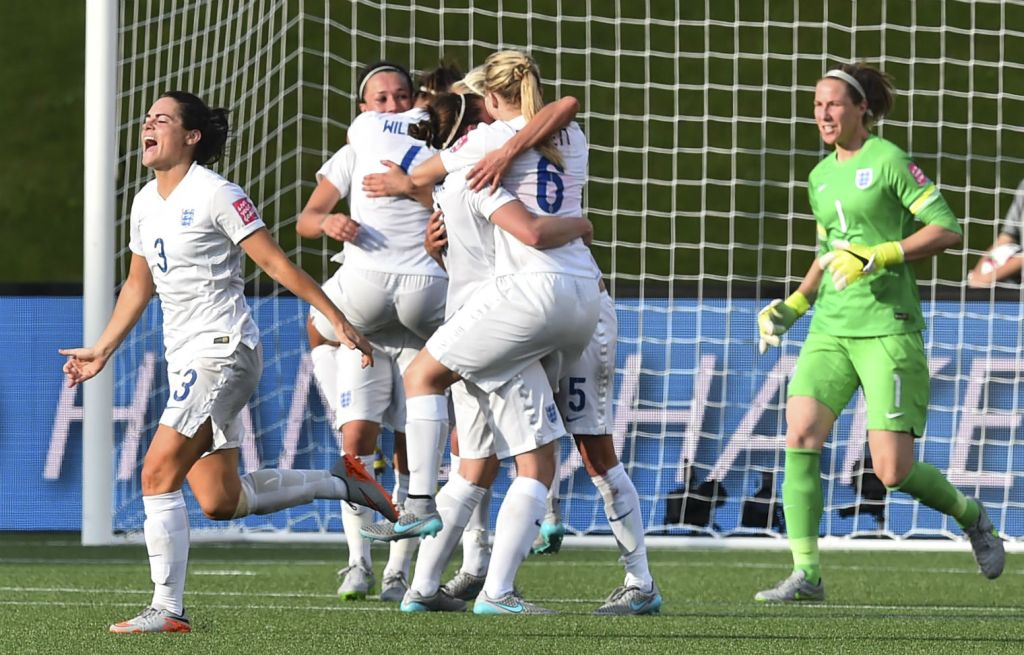By Alexandra Culvin
In this post, Alex provides an insight into her PhD research, which seeks to examine women’s experiences of working as a professional footballer in the UK.
The purpose of my research is to explore how women negotiate their identity and place in the occupational setting of the football industry. The information uncovered will be beneficial to governing bodies, both in football and other sports, organisations such as the Professional Footballers’ Association and football clubs in shaping policies and procedural guidelines for players. The research will provide insight into the subjective experiences of professional women footballers, uncovering potential commonalities between other professions focusing on organisational culture, career development and the expectations of women in the workplace. The research will examine whether women encounter negative stereotypes working in male dominated occupations. From an academic perspective, this work will contribute to the sociologically under-researched area of women’s football, enabling a greater understanding of professionalisation of sport and women’s place in it.
For my Masters dissertation I began to explore the consequences of the professionalisation of women’s football in England. This interest stems from my background, as a former professional footballer, where I played women’s football during its transition from amateur to professional status and was amongst the first players to establish a professional career in a highly precarious occupation. Analysing this transition retrospectively, I drew on my own to develop an auto-ethnographic account of this precarious and uncertain work (Culvin, 2014).
The evidence from the research showed that there were insufficient organisational (and emotional/social) policies in place as the expectations placed on players changed dramatically and publicly. Social policy can be considered significant in the advancement of women into the formal labour market. At the highest domestic level of women’s football in England however, there was limited infrastructure in place to support the careers of professional players.
Whilst a large body of work has examined women’s experiences of playing football (see, for example, Caudwell, 1999; Williams, 2003; 2007, Skille, 2008), there remains a knowledge gap in the literature, that specifically focuses on women’s experiences of working as a professional footballer. In contrast to studies of the careers of male football players (Roderick, 2006; and others), to date, no studies have considered how women players cope with their new highly precarious careers and work-life concerns. Furthermore, there has been no co-ordinated approach to employment and work-life issues. This is noted by Pfister (2015), who calls for research to stimulate an under-standing of women and football, which will ultimately provide evidence for policy and policy change.
The central aim of my thesis will be to make an original, timely and important contribution to knowledge by examining women’s experiences of working as a professional footballer in the UK. Currently, there is no understanding of work-life and workplace policies and programmes that exist to support women in this new workplace. Therefore this proposed research will seek to explore whether and how employment and welfare policies impact on the careers of female footballers, shaping future policies of the Football Association, the Professional Footballers’ Association, the FAWSL and women’s football clubs to enhance the quality of the players’ lived experiences in professional football.
My proposed research questions are:
- How is the work of women professional footballers gendered and what are the policy implications of this gendering?
- What work-life and workplace policies and programmes exist to support women foot-ballers?
- How do women professional footballers ‘do’ their work role and why are their work roles gendered in this way?
At this stage I am looking forward to commencing data collection and joining others at the Football Collective conference in November. At the conference I hope to present, get some feedback on my methods and discuss this area of research with interested colleagues. In the meantime, please do not hesitate to contact me and I look forward to meeting colleagues in November.
Alexandra Culvin e: ACulvin@uclan.ac.uk t: @alexculvin


Leave a comment